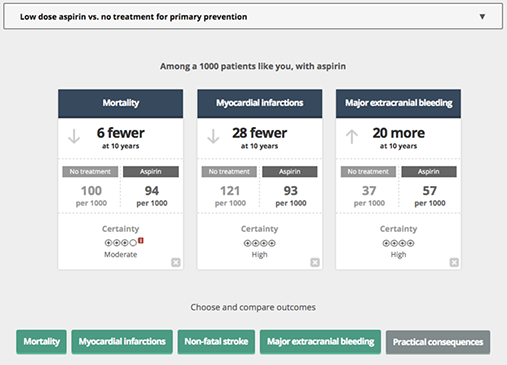Medical science to the people via an app

Researchers at the University of Oslo are developing an app that can help spread new and credible knowledge.
When you are admitted to hospital, you wish to be provided with the best possible treatment based on the most recent research. In reality, however, the road from research results to practical application can be a long one. New findings within a particular field must be thoroughly assessed and compared, and this new knowledge must then be brought to the medical institutions. This process tends to last more than a year, during which time new studies have been published.
From research to practical application
Per Olav Vandvik, who is a researcher at the Institute of Health and Society, would like to see new knowledge being shared more quickly. To reach this ambitious goal, he and his colleagues have developed an app called MAGICapp.
It will collect evidence-based medical knowledge from all over the world and disseminate it quickly and efficiently to various users.
"We want doctors and patients to be able to reap the benefits from new knowledge more easily," Vandvik explains.
Spreading research results faster
Vandvik mentions pneumonia as an example of the need for conveying new findings quickly to the public.
"At a very conservative estimate, 300 lives could have been saved in Norway if steroid treatment had been more rapidly introduced as normal practice," Vandvik states.
Steroids to treat pneumonia
A large and well executed study of pneumonia was published in The Lancet in January. The results indicated a clear benefit from using steroids. A change of practice must invariably be based on a summary of research from all studies available, so Vandvik's group decided to produce a systematic review.
"We prepared the review in a month and submitted it to Annals of Internal Medicine. They spent six months on the publication process," Vandvik recounts. His goal is to enter into partnership with a journal and ensure publication within three months after the production of new knowledge.
And the results will of course go straight into MAGICapp. "Having the new recommendation in place in MAGICapp took only 15 days," Vandvik tells us.
Quality-controlled information
"It is obviously essential that the information in MAGICapp is totally reliable," Vandvik emphasizes.
All information in the app stems from established organizations and specialist communities that develop medical guidelines. They assess new findings in light of internationally accepted standards, and are able to spread quality-controlled knowledge to health personnel and authorities.
MAGICapp functions as a publication platform, where they can publish and update their medical guidelines.
Many countries have started to use MAGICapp. The Norwegian Directorate of Health has established an innovation project with the aim of using MAGICapp for all national guidelines. MAGICapp is used by the Danish Health Authority, the Finnish Medical Association and others.
An app for all
"It is important to us that results be made available to a wider audience," Vandvik states.
By developing an app, they can reach out not only to doctors, but also to the man in the street. Doctors and patients can jointly open the app and find recommended therapies and other necessary medical knowledge.
Information is provided in several layers, and users can dig as deep as they need to. Different therapies can be compared at a couple of keystrokes and the advantages and disadvantages can be weighed against each other. Those who wish can dig all the way down to the individual studies that form the basis of the recommendations.
"Our goal is that the app should help promote a good dialogue between therapists and patients," Vandvik explains.
With MAGICapp into the future
The next stage of MAGICapp is to build a credible digital ecosystem. Vandvik's group wishes to capture, summarize and publish new knowledge quickly. He would like to see new and better treatment options introduced more quickly and therapies that are useless, or in the worst case harmful, discontinued faster.
"Useless therapies are an unnecessary burden on the patients and a waste of health resources," he reminds us.
He is now inviting the health authorities and the medical communities in Norway and in our neighbouring countries to join them. Their goal to ensure that this knowledge is implemented in practice.
"Our aim is to pump out new knowledge to health personnel and patients through systematic reviews and credible recommendations. We will provide them through our MAGICapp and medical journals. The example of steroids to treat pneumonia illustrates the value that such an approach can bring to patients and society," Vandvik concludes.

















